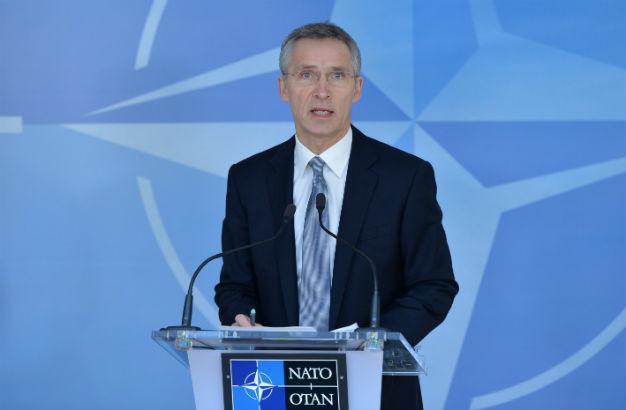NATO sends ‘clear signal’ with eastern presence: Stoltenberg
BRUSSELS – Agence France-Presse

AA photo
NATO chief Jens Stoltenberg on Feb. 10 said the alliance’s increased presence in eastern member states, which are alarmed by a more assertive Russia, sends a “clear signal” to any would-be aggressor.“Today and tomorrow, we will make decisions to strengthen our defense and deterrence,” Stoltenberg told a news conference as he opened a two-day defense ministers meeting at NATO headquarters in Brussels, during which issues including Turkey’s request for help in dealing with the flow of Syrian refugees was set to be discussed.
“I expect defense ministers to agree to enhance our forward presence in the eastern part of our alliance,” he said. “This will send a clear signal. NATO will respond as one to any aggression against any ally.”
This forward deployment, which diplomatic sources say may involve no more than 6,000 troops on rotation, is part of what NATO dubs “modern deterrence,” drawn up largely in response to the Ukraine crisis and Russia’s shock 2014 annexation of Crimea.
The concept, backed up with increased defense spending after years of post-Cold War cuts, puts small forces and equipment on the ground so that reinforcements can hit the ground running in any crisis.
NATO leaders are expected to formally endorse the plans at a July summit in Poland, which has led calls with other eastern European countries once ruled from Moscow for the alliance to station troops permanently along the border with Russia.
Other NATO member states have been reluctant to revert to what they see as a Cold War stand-off with Russia, especially when seeking Moscow’s help to solve other conflicts such as in Syria.
Stoltenberg stressed that there was no going back “to the days of the Cold War where we had hundreds of thousands of troops on bases.”
Asked whether having just small forces on the ground acting as a tripwire would really be enough to deter Russia, the secretary general said he had no doubts.
“We believe it is the best way to deter in a changed security environment,” he said.
The Ukraine crisis stung the 28-nation NATO into action in 2014, but since then turmoil across the Middle East and North Africa has stoked fears the alliance faces a whole new series of threats.
Stoltenberg has said the changes made are also applicable to some of these threats, with the war in Syria directly impacting key alliance member Turkey which along with Germany has sought NATO help with the massive refugee problem there.
U.S. Defense Secretary Ashton Carter will host a meeting of the anti-Islamic State coalition at NATO HQ in Brussels after the two-day NATO defense ministers meeting closes on Feb. 11.
















